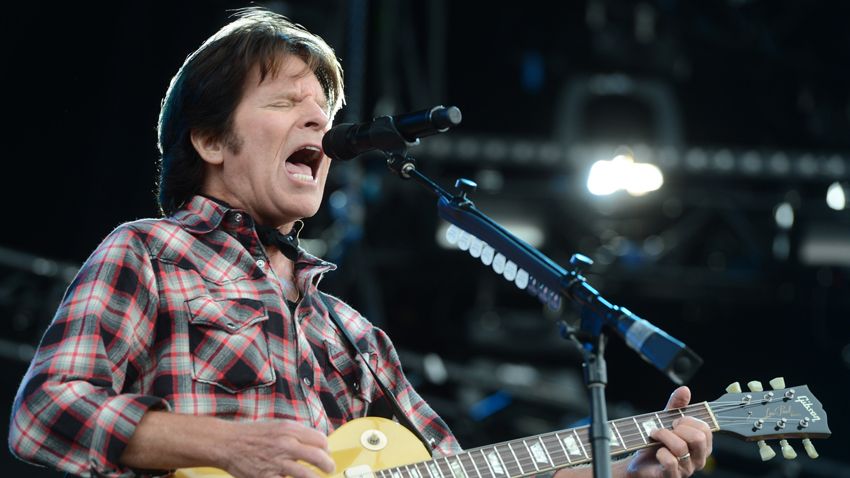
“Long Dark Night” is John Fogerty holding a lantern up to a troubled era—an urgent protest wrapped in a lean, driving rocker, where the darkness isn’t poetic: it’s political.
John Fogerty released “Long Dark Night” on October 2, 2007, as track 6 on his album Revival—a record that arrived like a hard-earned return to the public conversation. Revival debuted at No. 14 on the Billboard 200, selling about 65,000 copies in its first week, a striking opening for an artist long past the “new act” cycle and proof that Fogerty’s voice still carried weight in American rooms.
But “Long Dark Night” wasn’t built to chase the charts. It was built to say something—plainly, forcefully, with that familiar Fogerty economy that wastes no syllables and no guitar strokes. Even the album’s own description flags it as one of two war protest songs on Revival (alongside “I Can’t Take It No More”), explicitly aimed at the Bush administration and the Iraq War. That framing matters, because Fogerty has always written protest music that doesn’t sound like lecturing. It sounds like a man pacing the floor, jaw tight, speaking in the only language he trusts—rhythm, riff, and a chorus that won’t let you look away.
In the credits, the song is as “Fogerty” as Fogerty gets: written and produced by John Fogerty, with the official release metadata also crediting him as arranger, and noting the work was mixed at NRG Recording Studios in North Hollywood. The runtime is a brisk 3:07—a compact duration that actually intensifies the message, like a dispatch sent under pressure. There’s no wandering, no decorative bridge to soften the blow. This is Fogerty doing what he has always done best: taking a complicated national mood and compressing it into something you can feel in your chest.
And what you feel, first, is unease. The title “Long Dark Night” is not subtle, and it doesn’t need to be. Fogerty isn’t painting darkness as romance; he’s painting it as duration—night that keeps stretching, the kind of night where you stop asking when will this end? and start asking what is this doing to us? That sense of protracted dread is exactly what made the mid-2000s so heavy for many listeners: the steady drip of bad news, the arguments at dinner tables, the suspicion that something had tilted in the national character and might not tilt back quickly.
Musically, Fogerty chooses motion over mourning. The groove pushes forward the way a restless mind pushes forward, unable to sleep, unable to settle. That’s an old, almost American instinct: when the world feels wrong, you move—drive, work, play louder—because stillness leaves too much room for thinking. Fogerty understands that impulse, and he uses it. The song’s propulsion becomes a kind of nervous energy, the soundtrack to turning the radio up because silence feels like surrender.
What makes “Long Dark Night” especially resonant in Fogerty’s catalog is the echo it carries from earlier decades. Long before 2007, he was already writing about power, class, and the human cost of political decisions—often in songs that people mistakenly treated as anthems rather than warnings. With Revival, Fogerty steps back into that role knowingly, older and less interested in being misunderstood. He isn’t playing the charming narrator. He’s pointing. And the fact that the album opened at No. 14 suggests there were plenty of people ready to be pointed toward something honest.
In the end, “Long Dark Night” lands like a late-night conversation with someone you trust—someone who doesn’t need to raise his voice for you to hear the seriousness. It’s not nostalgia. It’s conscience. It reminds you that even a great rock riff can carry a moral weight, and that sometimes the most “classic” thing an artist can do is refuse comfort and choose clarity.
Because a long dark night isn’t just something you endure. It’s something you remember—especially the moment you realized it wasn’t going to pass on its own, and that staying awake was part of staying human.